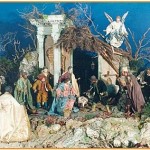I am in Malta for a week. I walked by the bay where St Paul was shipwrecked and watched the enormous sky turn pink-streaked, red-puffed, crimson, colouring the waters of the bay which had been a glorious aquamarine a bright pink. The sky, the sea, they changed their aspects every minute. Surely the heavenly painter was having fun with his creativity, showing off for me.
I sat thinking about Paul.
While the Spirit is gender-blind in his giving of gifts, Paul’s words have been used to harm people, especially women and gays, and specifically to deny women the opportunity to teach, or preach, or lead. What he said to the first century women in Ephesus or Corinth has been used as an excuse to subjugate and side-line women, yes, even in our century.
But that is not the whole story of Paul, just as our blind spots are not our whole story.
He knew Christ intimately—the Risen Christ whom he had never met in the flesh, thereby enlarging our perception of how much it is possible to know Christ and to find fullness of joy in him, without ever having met him.
And in the Mamertine Dungeon, he claims we should rejoice always, and give thanks in everything. Rejoice? Yes, because of the presence of our Saviour with us
For me to live is Christ, to die is gain, Paul says.
Me, I love life. I would like to live for decades more, gardening, reading, writing, learning, travelling, hanging out with friends. Just puttering. I don’t want to die.
But as I was flying to Malta yesterday, I looked down at the beautiful rosy-pink clouds, and was at peace with death. I am certain that there is life beyond the veil, because Jesus talked about it often in the Gospels, and believe that I will step through the veil and be with Jesus.
Why? Well, I guess I have hung out with him for so long a time here, in prayer, in studying his words and deeds. I have often seen him with the eyes of faith, clearly and in a low-key way like as the Prophet Amos, who casually said, I saw the Lord standing by the altar. So I believe beyond doubt that the one whom I have known here, who has comforted and guided and loved me here, will love me “there.”


















